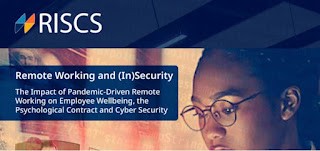My CDT Voyage: Rory Hopcraft
With the end of my research on the horizon, so too is my CDT journey. Now is as good a time as any to look back and reflect on my time at the CDT, and where it has led me.
For me, my journey started back in 2016 after finishing my masters in Geopolitics at RHUL. It was through this course that I met many of the early CDT cohorts completing their Introduction to Geopolitics module. Many of whom gave me the confidence to apply for the CDT.
I can still remember my interview as though it was yesterday. It started with a grilling from Keith Martin about why we should care about maritime cybersecurity. Saying that, he still continues to regularly grill me as one of my supervisors. My second interviewer was Kenny Paterson, whose opening salvo was along the lines of “how intelligent do you think you are?” all while peeling an orange. All very intimidating, but needless to say I was obviously successful as I am now writing this reflection.
The most daunting part of that first year in the CDT was the technical modules we have to attend. My ICT education ended early on in my academic career when my secondary school prioritised modern languages over computing. So while sitting in lectures with 4-5 times more students than I am used to, I often pondered the usefulness of my ‘C’ in GCSE French. However, one of the many benefits of the CDT is that you are surrounded by a whole community of like-minded people. Without this support the whole PhD would have been a lonely experience.
Over the course of my research I have had the opportunity to engage with a wide variety of interesting people, both at Royal Holloway and within the broader security community. I have always enjoyed standing up and talking about my research, so I know many of you have had to endure my presentations with their somewhat tenuous links to pirates and polar bears. However, if there was one piece of advice I could give to those just starting their CDT journey it would be this: put yourself out there and present your work as much as possible, it really does help develop your research, plus you never know who might be in the audience.
For me, my entire methodology revolves around chatting with (I mean “interviewing”) interesting people, and discussing ideas. I can hear a few mathematicians shuddering at the use of qualitative data, but as a social scientist it is the bread and butter of my research. Putting myself out there and talking to anyone who would listen has opened so many doors, which is now just as important post-PhD.
Out of all my CDT years, the third year was by far the busiest, but equally the most rewarding. It was the year I published my first journal article, off the back of putting myself out there and writing a short blog post for The Conversation with Keith. It was also the year I spent three months in Denmark working with the shipping association BIMCO. You will be forgiven for not knowing that BIMCO are the authors of the guidelines that have now become the maritime industry standard for cybersecurity on board ships.
With the CDT's support I was able to embed myself within the company on an internship, and during my time there I produced draft text for the upcoming revision of those guidelines.
The opportunity to engage for a longer term with such an important stakeholder enriched my own research dramatically. Being able to work at the coalface, and help make decisions that could ultimately have an impact on international policy was a great privilege. Plus, it gave me a greater confidence that my research was on the right track, and that I would in fact enjoy working within the space post-PhD.
With one voyage coming to an end, another begins. As of the end of September 2020, I joined the Maritime Cyber Threats Research Group at the University of Plymouth. I am now working on an EU Horizon 2020 project called CyberMAR as a research fellow. Over the next two years the project will build a platform that demonstrates the consequences of various maritime cyber-attacks, which will allow operators to make informed cybersecurity decisions. My role allows me to continue researching and hopefully, have a beneficial impact on the sector.
So, to end I want to say I will always be grateful for the CDT and my supervisors, Klaus Dodds and Keith Martin, for supporting me throughout my research. Without the CDT I would not have been able to achieve what I have, nor had as much fun as I did doing it.


Thank you very much for sharing your experience Rory! Enjoy your experience at the University of Plymouth
ReplyDelete
ReplyDeleteThe blog is more impressive... I liked it!!!
.net Coaching Centre in Chennai
Dot Net Online Training
Dot Net Course in Coimbatore